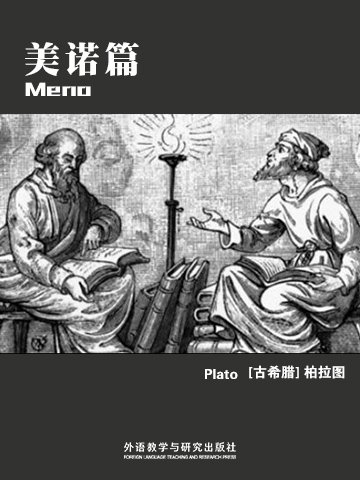Plato's Meno is a Socratic dialogue in which the two main speakers, Socrates and Meno (also transliterated as Menon), discuss human virtue: whether or not it can be taught, and what it is. One feature of the dialogue is Socrates' use of one of Meno's slaves to demonstrate his idea of anamnesis, that certain knowledge is innate and "recollected" by the soul through proper inquiry.
《美诺篇》,是柏拉图记载的苏格拉底对话录,以苏格拉底对话体写成。此对话试图确定德行(virtue)的定义,即德行的本质定义,而非某些特定的美德(如正义与节制等)。目标在于一个普适的定义,适用于一切特定的德行。
Meno is a Socratic dialogue written by Plato. It attempts to determine the definition of virtue, or arete, meaning virtue in general, rather than particular virtues, such as justice or temperance. The first part of the work is written in the Socratic dialectical style and Meno is reduced to confusion or aporia. In response to Meno's paradox (or the learner's paradox), however, Socrates introduces positive ideas: the immortality of the soul, the theory of knowledge as recollection (anamnesis), which Socrates demonstrates by posing a mathematical puzzle to one of Meno's slaves, the method of hypothesis, and, in the final lines, the distinction between knowledge and true belief.
- MENO
- 书评 写书评
- 笔记
-
书评加载中...
















 京公网安备 11010802032529号
京公网安备 11010802032529号
笔记加载中...